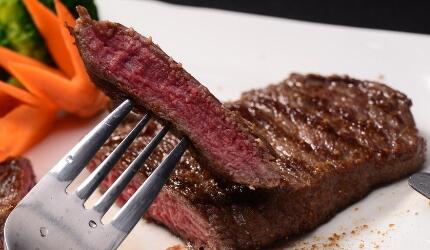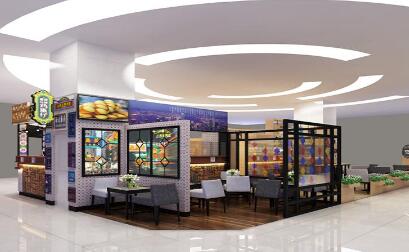MIT研究者正在努力让会飞的家具走向可能“乐鱼官网入口网页版”
本文摘要:Imagine a future where your furniture flies, reacting and responding to your everyday needs. You could have an almost-sentient desk that jets off when it feels you’re over-working, or a remote control that floats over when you think you’ve lost it.想象一下,未来你的家具不会飞来,还能符合与对此日常市场需求。
Imagine a future where your furniture flies, reacting and responding to your everyday needs. You could have an almost-sentient desk that jets off when it feels you’re over-working, or a remote control that floats over when you think you’ve lost it.想象一下,未来你的家具不会飞来,还能符合与对此日常市场需求。当你工作过量时,智能书桌不会自动飞离;当你以为遥控器扔了,它不会自动显露在你眼前。In an interactive project dubbed Levolved, Harshit Agrawal and Sang-Won Leigh, two researchers from the MIT Media Lab’s Fluid Interfaces Group, are exploring how to make everyday objects transform into “flying smart agents.”来自MIT媒介流界面小组的两位研究者哈什兹·阿格拉瓦尔与桑王·利,于是以探究如何让日常用品改变为“不会飞来的智能物件”。
We really look at this as a way of making the objects around us kind of speak with us, Agrawal said. “In the sense that they somehow know what they are doing, so they might prevent you from doing something wrong or light up your path in a dark environment.”阿格拉瓦尔说道:“事实上,我们期望能让身边的物品与自己对话,即物品从或许上理解你的市场需求,因此它们能避免你作出失当行径,或者懂在黑暗中为你指示灯一盏灯。”So far, their project features drones acting as flying tables that adjust to your height, fly away once you’re done, or auto-eject if you start using the wrong pen on your homework. They also have a lampshade drone that hovers above you, focusing light on where you need it when you’re reading a book in the dark.到目前为止,这项以智能飞翔为特点的家具计划中,有不会飞来的桌子能自动适应环境你的体重,一旦工作已完成,它不会自动飞离;有当你做作业时拿错了会自动打中的钢笔;还有漂浮在你身边的灯罩,它不会自动在黑暗中为你获取明亮。To power their flying furniture, the pair used a motion capture system where a camera tracks everything in the room—including the person and the drone, which receives commands from the computer.为了较慢推展飞翔家具,两位研究者用于了动态捕猎技术,让摄像机对房间的每一个角落展开跟踪,还包括主人和该家具,然后通过电脑拒绝接受指令。
The computer knows where the drone wants to go by tracking where the person is, explained Leigh. “We are feeding that data from the computer to the drone so that it can move smoothly to the required position.”利说明道:“电脑通过跟踪人的方位,就能知悉飞翔的家具不应去往何处。我们将电脑中的数据传输给家具,使其精确移动到登录方位。”Currently, the duo faces two main challenges: stabilizing the drone, and feeding it a regular power supply (at the moment, it’s connected to a power socket).如今,两位研究者面对着两大挑战:强化飞翔家具的稳定型,并构建电池功能(现在它们仍倚赖电源插座)。
Drones can’t support much weight yet, so the team opted for a paper tabletop. They soon found, however, that if they placed the tabletop directly on top of the drone, it blocked airflow. To solve this problem, they made the distance between the drone base and its paper tabletop greater so it could keep flying.飞翔家具还无法忍受过多的重量,因此研究团队搭配了纸质台面。然而他们迅速找到,如果必要将台面拢到飞翔家具上,不会妨碍飞行中。
为了解决问题这个问题,他们增大了飞翔家具底座和纸质台面的距离,以确保它能飞行中。Agrawal said that in the future, they could optimize stability by replacing a hovering desk with one that parks in front of users when they need it, then clears off when the user has finished their task.阿格拉瓦尔指出,在未来,他们将优化飞翔家具的性能,用飞翔的桌子替换用户面前静态的桌子,当使用者工作已完成后,桌子能自动离开了。Ultimately, the researchers are set on enchanting everyday appliances so that they surpass their limitations as static objects, and have a more socially collaborative relationship with their human owners.最后,研究者将让日常家电也魔力宛如,它们将打破传统静态物品的局限,与人类创建更佳的协作关系。
本文关键词:leyu·乐鱼,乐鱼体育,leyu体育,leyucom乐鱼官网官方网站,leyu手机在线登录入口,乐鱼网页版在线登录,乐鱼官网入口网页版
本文来源:leyu·乐鱼-www.liyumenhotel.com
推荐资讯
- 今日头条大数据:5G手机用户73.82%2024-11-23
- 云网络安全公司Netskope宣布融资32024-11-23
- “leyu手机在线登录入口”SDN重构电2024-11-22
- OculusRift装机教程:从这里开始2024-11-22
- 锂电池粘结剂电化学机理模拟与表征方法研究2024-11-22
- 【leyu手机在线登录入口】大数据在智慧2024-11-21
- 【万向区块链蜂巢学院公开课】:全球稳定币2024-11-20
- 5G前夜的30声礼炮丨韩国率先实现5G商2024-11-20
- 今日看点:“DNA3D打印机”让科学家按2024-11-19
- 以太坊新语言Vyper正式发布:智能合约2024-11-19
餐饮项目推荐
- 加盟指南
- 经营技巧
- 餐饮营销
- “leyu·乐鱼”(07月03日)能源结
- “leyu·乐鱼”(07月04日)神宁集
- (01月13日)煤炭分质利用缘何“热得快
- (12月11日)发展煤化工也要“精细化”
- (01月15日)山西晋城1-11月煤层气
- (01月26日)尿素突破2000元/吨大
- (03月08日)山西将有序放开煤层气勘查
- (10月06日)玉门浩海200万吨煤化工
- leyu·乐鱼_(09月28日)中海油煤
- leyu手机在线登录入口_环保型芳烃橡胶


























我要加盟(留言后专人第一时间快速对接)
已有 1826 企业通过我们找到了合作项目